Editor’s note: This is a recurring post, regularly updated with new information.
It’s one of the first decisions we make when booking a flight: Should I book a round-trip or a one-way flight?
It’s typically something you’ll think about before you ever click “search” to find flights and airfare.
At face value, it seems like a pretty straightforward choice. Book a one-way flight if you’re only flying in one direction, and book a round-trip flight if you’ll be returning home … right?
Unfortunately, it’s not quite that simple. Thanks to airline pricing trends and our own personal scheduling quirks, there’s a bit more to consider.
There may be cases where you wonder if you’re better off booking two one-way flights to save money. You may have uncertain plans that make it difficult to commit to a return flight. In some cases, when visiting a few different cities, you may be better off with something different entirely: a multicity itinerary.
There are also plenty of additional considerations if you’re booking an award flight using frequent flyer miles or flying internationally.
Here, we break down the basics of what you need to know about booking round-trip flights.
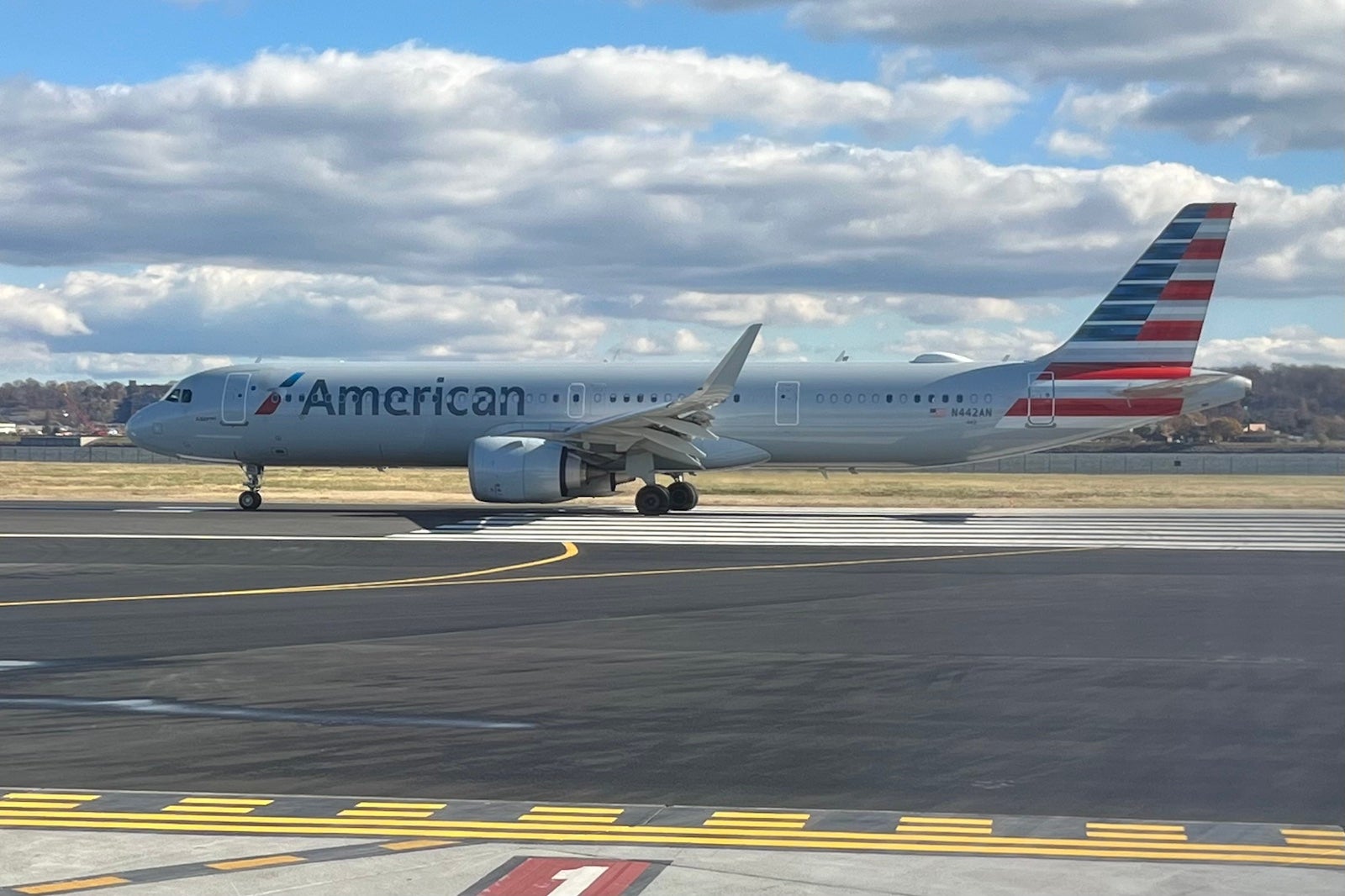
What is a round-trip flight?
A round-trip flight is an itinerary from one destination to another, with a flight back to the original destination.
In most cases, this is what you probably book when going on vacation or visiting a family member for a holiday weekend.
Let’s say I live in Charlotte and want to fly to Arizona for a spring break trip. I book an itinerary with an outbound flight to Phoenix Sky Harbor International Airport (PHX) and a return trip to Charlotte Douglas International Airport (CLT) aboard American Airlines.
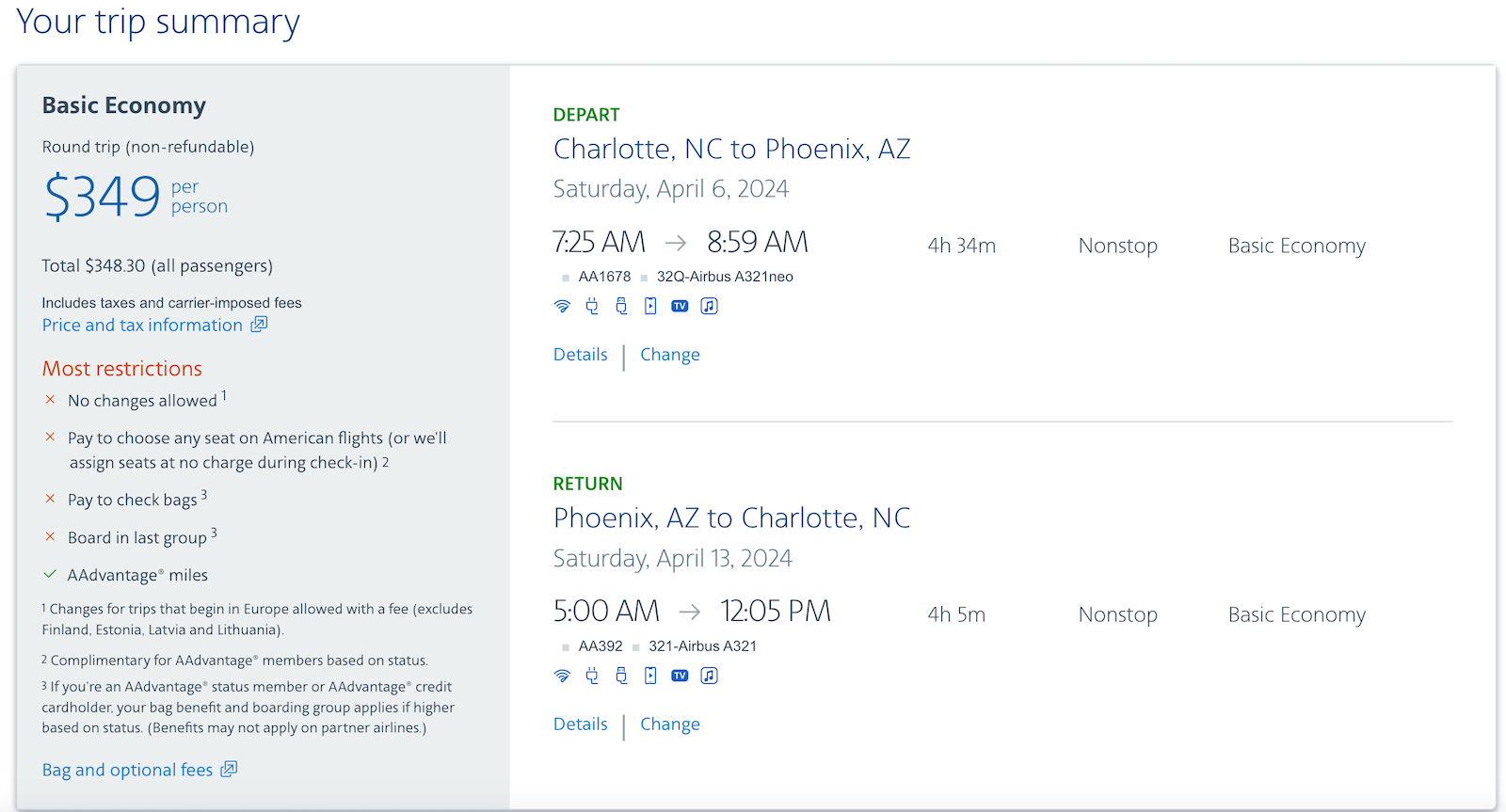
The two flights, booked together on a single itinerary, constitute a round trip.
What is the difference between a round-trip flight and a one-way flight?
When you book a round-trip flight, your itinerary includes an outbound flight and a return trip.
A one-way flight only takes you one direction — say, from Charlotte to Phoenix — with no return flight scheduled.
Is a round-trip flight different from 2 one-way flights?
Yes, in terms of how you book your trip. No, in terms of your travel plans themselves.
Again, a round-trip itinerary includes both an outbound flight and a return trip to the city of origin. A one-way flight is a single trip from one airport to another, with no return booked.
Booking 2 one-way flights
However, if you book two one-way flights, you can, in essence, create your own version of a round trip. This could be on the same airline or on two entirely different airlines.
For the purposes of your travel experience, it’s effectively a round trip.
But, know that in the airline computer system(s), you’d technically be traveling on two separate reservations. So, you’d receive different trip confirmation numbers for the outbound and return flights.
Is booking 2 one-ways cheaper than a round-trip flight?
In the U.S., splitting a round trip up into two one-way flights on the same airline and travel dates typically makes no difference in terms of price.
However, on a small number of routes, airlines do charge a premium for one-way bookings compared to the price they charge for a round trip. This is more common internationally, where round-trip flights can be a better value than two one-way trips. Booking two separate one-way flights tends to be more expensive for international travel.
Also, budget carriers frequently offer one-way fares at the same price as a round-trip ticket.
That means if you booked separate one-way flights, you’d most likely end up paying the same as, or even more than, a round-trip fare, depending on the route.
Booking 2 one-way flights on different airlines
On the other hand, there are cases where, thanks to a tool like Google Flights, you might discover that you can save money by booking an outbound, one-way flight on one airline and a one-way return flight on a different airline.
For example, last year, TPG contributor Sean Cudahy needed to travel to North Texas for the weekend. Round-trip flights on a single airline from the Washington, D.C., region to Dallas Fort Worth International Airport (DFW) were coming in at more than $600 that particular weekend.
However, he saved a couple hundred dollars by mixing and matching: He booked a one-way, outbound flight to DFW aboard Delta Air Lines and a separate, one-way return flight on American Airlines.
Just keep in mind this can be risky. If your flight on one airline gets significantly delayed — to the point that you miss your return flight — your second airline won’t automatically rebook you. The airline staff may not have much sympathy for your situation since your troubles happened aboard a different carrier.
Can I book a round-trip flight to 1 city and then return home from another?
Yes. These flights are known as open-jaw or multicity itineraries. Many airlines offer this booking option.
Let’s say I want to fly from Newark Liberty International Airport (EWR) to Orlando International Airport (MCO). I’m going to visit Walt Disney World for a few days. Then, I’m going to take a Brightline train to South Florida and spend a few days at the beach before flying back to New York.
Since these are airports heavily served by JetBlue, I’ll use that carrier as an example. On JetBlue’s website, I’ll select “Multi-city” instead of searching “Roundtrip” or “One-way” flights.
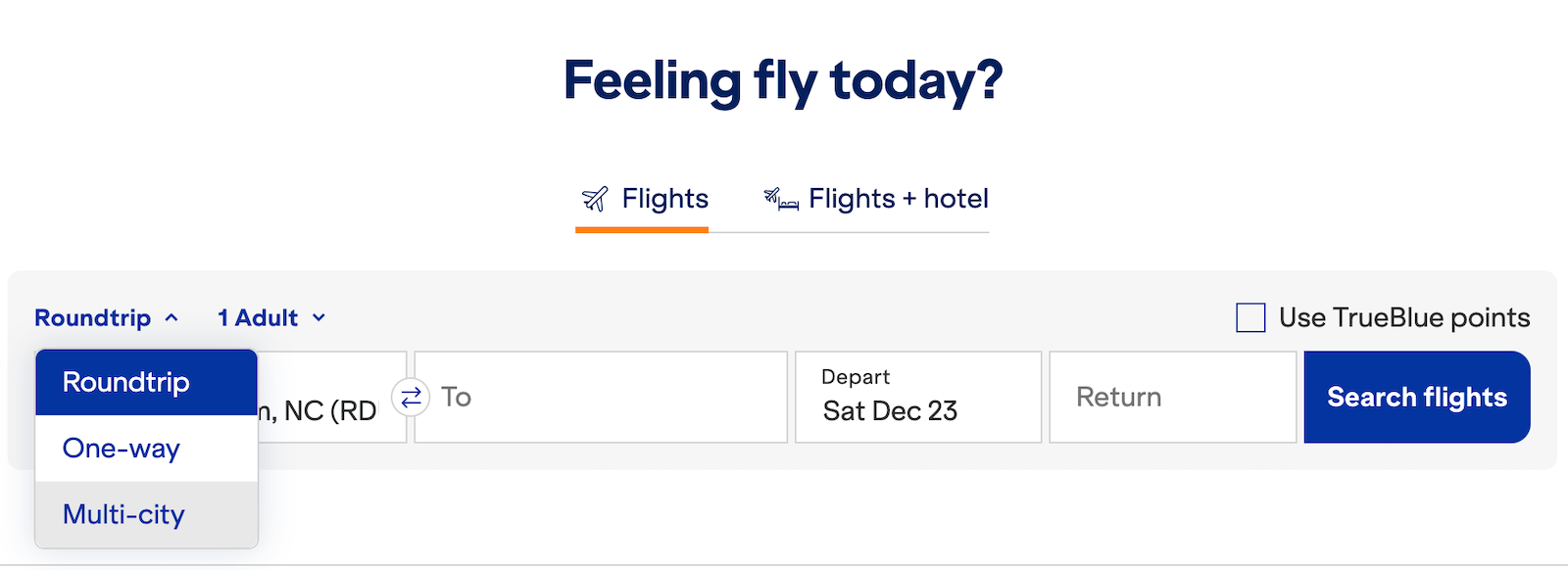
I’ll need to separately enter each leg of the trip. Let’s do a Saturday departure from Newark to Orlando, and then a Thursday return from Fort Lauderdale/Hollywood International Airport (FLL) to Newark.
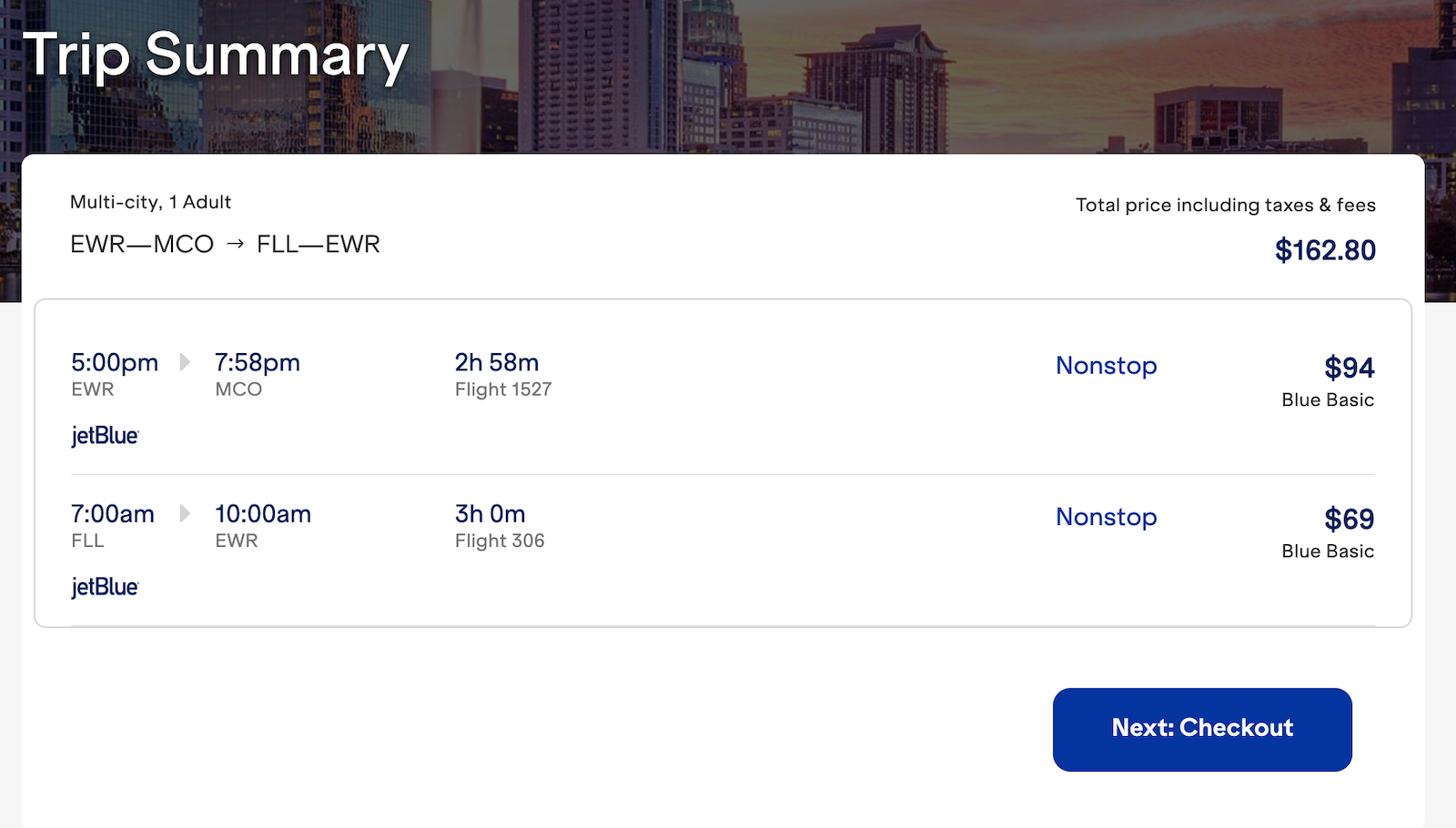
You’ll end up booked on a single itinerary, with the outbound and return flights linked, but with the different city combinations.
Can I buy a round-trip flight with an open return?
No, not exactly. When you book a round-trip flight, you’ll generally have to specify a return leg and date.
If your plans are likely to change, though, what you’ll want to do instead is pick a date that’s far enough out. You’ll need to book with an airline or in a cabin class that doesn’t charge change fees. Then, reschedule your return trip once your plans are set. Alternatively, you can book a “flexible” fare, which is more expensive but generally allows easier changes.
Make sure you’re familiar with an airline’s change-fee policy before booking an open-return round-trip flight. For example, most airlines won’t let you cancel or change basic economy tickets.
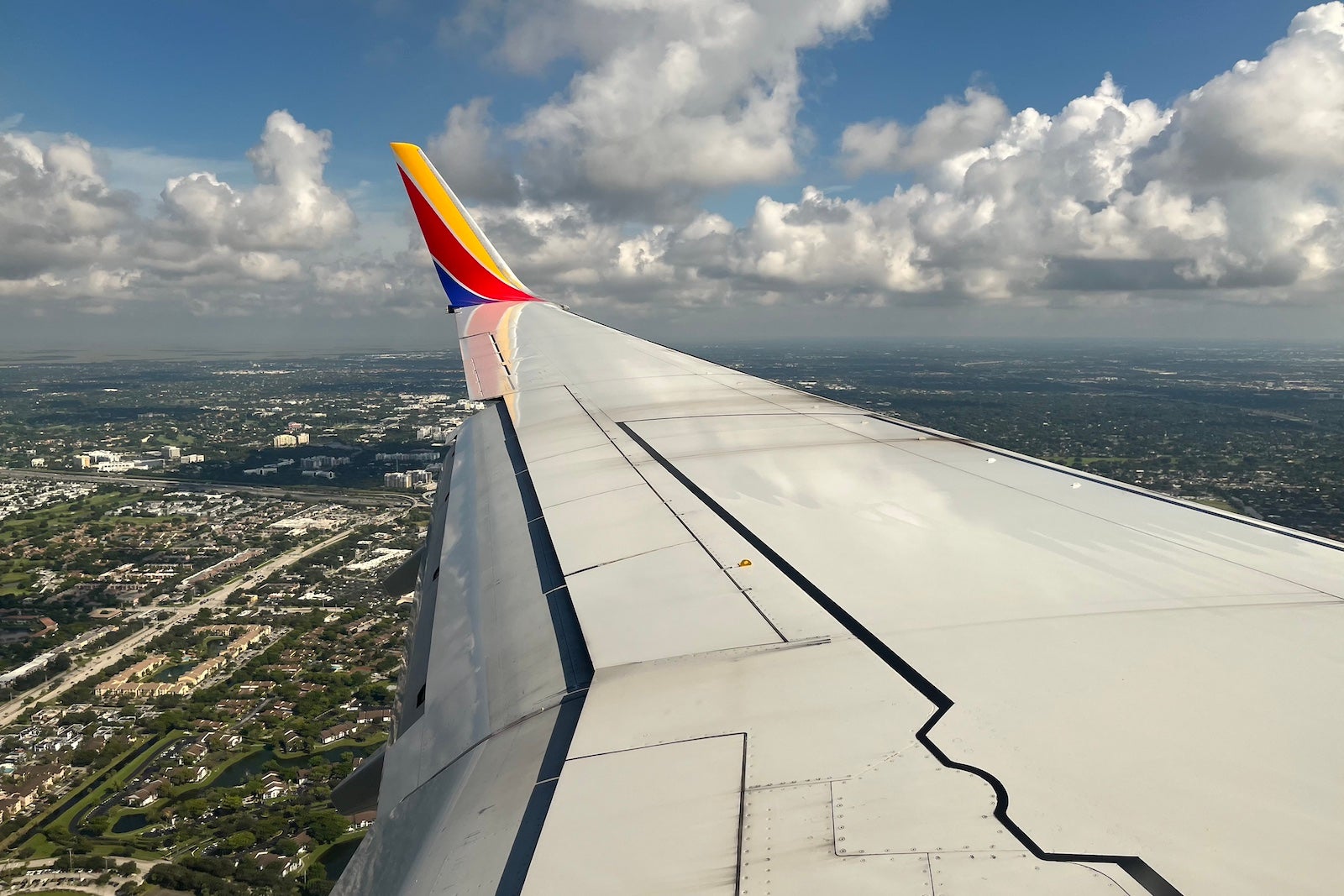
Should I book mileage or award tickets as 2 one-ways or a round trip?
It largely depends on the route. In some cases, you’ll get better award availability if you book two one-way flights. In others, the taxes for two one-way award flights could end up being higher than what you’d pay for a round-trip itinerary.
However, in most cases nowadays, award tickets for two one-way flights and a round-trip flight tend to add up to the same number of miles. Just be sure to check both on an airline’s website to ensure you’re getting the best possible award availability.
Related reading:
- When is the best time to book flights for the cheapest airfare?
- The best airline credit cards
- What exactly are airline miles, anyway?
- 6 real-life strategies you can use when your flight is canceled or delayed
- Maximize your airfare: The best credit cards for booking flights
- The best credit cards to reach elite status
- What are points and miles worth? TPG’s monthly valuations




